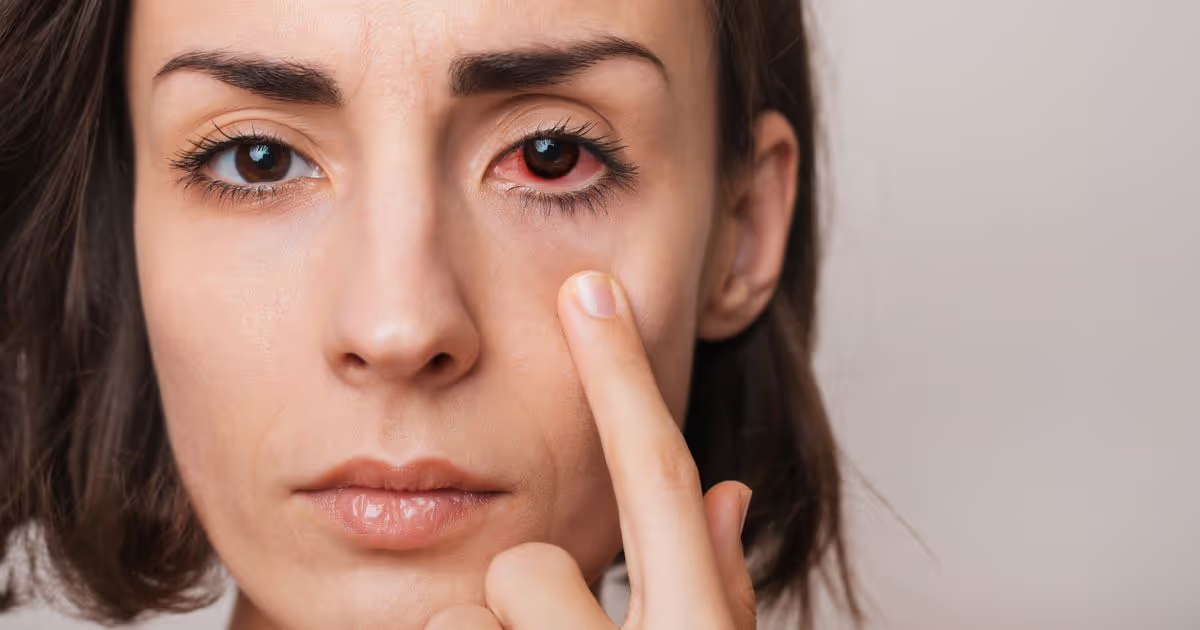Choose the content to read
Uveitis
The uvea refers to structures of the middle layer of the eye, consisting of the iris, which controls the amount of light entering the eye; the ciliary body that produces the aqueous humor; and the choroid, the blood vessel layer between the sclera and the retina, supplying nutrients and oxygen to the retina.
Uveitis is the inflammation of the uvea. Inflammatory cells and their mediators can damage tissue in the eyes and reduce its function, which could lead to reduced or permanent loss of vision. Immediate consultation with your ophthalmologist for proper diagnosis and proper treatment is crucial.
Types of uveitis
Classification of uveitis is based on the site of inflammation as follows:
- Anterior uveitis or iritis is the most common type. Inflammation occurs within the front part of the eye, specifically the iris and the ciliary body. It can cause redness or sudden eye pain.
- Intermediate uveitis primarily impacts the vitreous humor and may affect the blood vessels in the retina.
- Posterior uveitis is inflammation in the retina or choroid. This type of uveitis can drastically affect vision.
- Panuveitis occurs when inflammation extends from the front to the back of the eye.
Symptoms
Symptoms of uveitis can vary, depending on the site and severity of inflammation. They could be acute or develop gradually in one or both eyes. Common symptoms include:
- Pain and redness in the eye without eye discharge.
- Sensitivity to light
- Decreased vision
- Seeing floaters
Causes
Uveitis can arise from many causes, such as infection, autoimmune diseases, or rare retinoblastoma. In more than 50% of the patients, doctors cannot identify a cause after investigations and laboratory tests. Uveitis can be related to infectious diseases, such as herpes simplex, herpes zoster, syphilis, toxoplasmosis, tuberculosis, or autoimmune diseases, such as Behcet’s disease, SLE, sarcoidosis, and ankylosing spondylitis.
Complications
- Cataracts.
- Glaucoma.
- Optic nerve damage.
- Permanent vision loss.
- Retinal detachment.
- Retinal scarring.
- Retinal swelling.
Diagnosis
- Vision test.
- Tonometry.
- Slit-lamp examination.
- Color fundus retinal photography
- Optical coherence tomography (OCT)
- Fluorescein angiography
- Blood tests to identify infectious or autoimmune diseases.
- Imaging tests such as CT scan or MRI
Treatment
The initial treatment aims to minimize inflammation as much and quickly as possible to prevent ocular tissue damage. Types of medications prescribed are:
Corticosteroids are available in many forms.
For anterior uveitis, treatment is frequent use of corticosteroid eye drops.
- If you have posterior uveitis, oral or IV corticosteroids or injectable corticosteroids into the vitreous humor may be given in some.
- Dilating eye drops relieves eye pain caused by spasms of the iris and ciliary body.
- Antibiotics or antiviral medications for bacterial or viral infections
- Immunosuppressants for severe cases or prolonged use of corticosteroids are necessary.
After proper diagnosis and treatment, you should have regular follow-up appointments with the doctor to closely assess inflammation and symptoms, adjust the dose of medication, and monitor for the side effects of medications, such as cataracts or glaucoma.
If uveitis symptoms recur or aggravate after a remission, immediately see your ophthalmologist.






